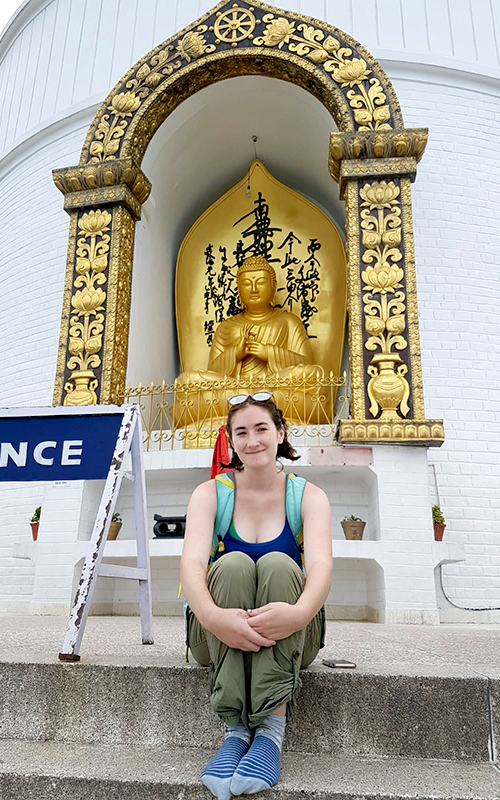Lauren Duan interning in Italy, summer 2018.
Study and Travel Abroad
Students routinely report that international experiences during college were the most valuable and transformative of their lives.
These are times of growth and change in many areas: academic, professional, personal and intercultural. Students report that studying, traveling or working abroad provided them with increased problem-solving skills, improved foreign language proficiency, and led to new professional contacts, more independence, an enhanced awareness and appreciation of their home culture and a stronger interest in and appreciation for other cultures. In all of these ways, study and travel abroad reflect all of the key elements of experiential learning at its best.
The university's Office of International Education (OIE) works with undergraduate students to develop goals and learning objectives for study and travel abroad, to identify programs that align with student interests and needs, to develop detailed plans for study or travel abroad and to prepare students for the experience of living, studying, traveling or working abroad.
To learn more, meet with one of the Study Abroad Advisors in the university’s Office of International Education, as well as your advisors within Dietrich College.
Study Abroad for Humanities and Social Sciences Students
In addition to the numerous programs listed in OIE's Study Abroad Portal, The Department of Languages, Cultures & Applied Linguistics hosts multiple study abroad programs for Dietrich College students.
Study Abroad in Monteverde, Costa Rica*
*Collaboration with the Department of Statistics & Data Science
Other Dietrich College Study Abroad Programs
Both the Department of English and the Information Systems program host study abroad experiences:
- The English Department's Mediated Narrative Course, which takes place during spring break.
- Information Systems' Technology Consulting in the Global Community program.
Funding for Study and Travel Abroad
Funding for study and travel abroad is available through Dietrich College and many other sources. By working closely with your study abroad advisor, you may be able to tap several funding sources that would help cover some of your projected study or travel abroad costs.
Safety & Security
As a global institution, Carnegie Mellon values intercultural experiences gained when students participate in education abroad; however, international travel does have risk. Office of International Education (OIE) staff balance the benefits of these experiences with specific risk factors when advising and funding individual and group study/travel abroad. We encourage students to discuss their travel plans early and thoroughly with their families and campus advisors. Learn more from the OIE about safety and security issues.
